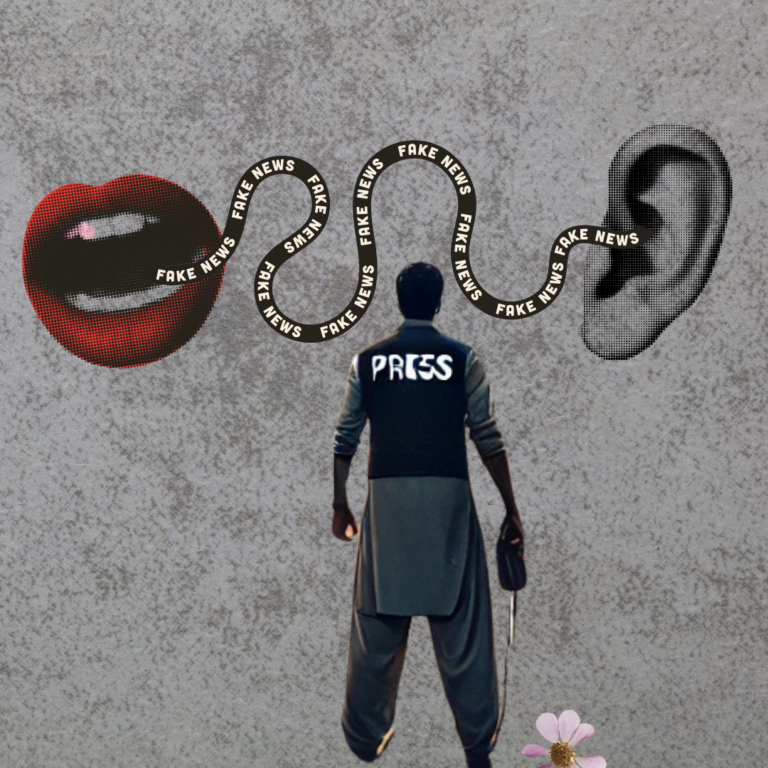Cast: Hamza Ali Abbasi, Sohai Ali Abro, Nadia Jamil, Ahmed Ali Akbar and Danyal Zafar.
Themes: freedom, loyalty , and sacrifice
The third episode’s jaw-dropping finale left us curious and intrigued, with its dark humor, moral ambiguity, and looming tensions setting the stage for an electrifying episode four.
Batish’s Moral Conundrum
Batish (Hamza Ali Abbasi) emerges as a complex anti-hero. He has no hesitation in delivering swift vengeance on Jimmy setting the stage for even higher stakes this episode. The dark humor of this show really comes to the forefront, when his friend (Haroon Shahid) questions his motives and Batish quips, “Jimmy Drill ki drill chala di,” (yes, Jimmy Drill was his gangster name—prompting dejavu for too many). But beneath the humor is a deep sense of simmering betrayal. He sees Jimmy and Naseer Bhai’s plot as a personal attack targeting Professor Hamdani and labels it selfish and ruthless.

Harsh reality hits hard when his friend points out Batish’s own hypocrisy. For years, he’s been part of the same dirty games he now condemns, and suddenly, Batish is faced with an uncomfortable truth. He has spent his life justifying his actions, but now he’s forced to reckon with the possibility that he, too, might be a villain lost in a labyrinth of moral compromises.
The revelation that Jimmy is Shah Sahab’s nephew, Jameel Ansari, adds further complications and a layer of weight to the consequences of Batish’s brutal act. This tension between revenge and righteousness raises a compelling question: is Batish a hero, a villain, or something in between?
Shah Sahab’s Phantom Power
Shah Sahab (Mehmood Aslam), still only a voice on the other end of the phone, continues to loom like a phantom kingpin. Shah Sahab’s commanding voice—part intimidation, part calculation—is masterfully portrayed by Mehmood Aslam. His mere presence (or lack thereof) demands fear, and the tension rises as his minions scramble to uncover the truth about Jimmy’s killer. Naseer Bhai (Tanveer Syed) is warned that if he doesn’t find Batish soon, he may lose everything, including trading in his right-hand man badge for a truck driver’s license.
Shah Sahab’s political faction, the Qaumi Ittehad Party (QIP), is a thinly veiled nod to a real-world political party in Karachi, making the drama hit dangerously close to home for many viewers. The QIP’s sinister underbelly is on full display when Jimmy’s body is wrapped in the party flag—a macabre symbol of loyalty and sacrifice. This stark imagery draws unsettling parallels to Karachi’s political realities, highlighting the complex interplay of power, loyalty, and violence.
A flashback from Naseer Bhai’s pov shows how he had asked Jimmy to take out Batish and recite his Fatiha. Fate flipped the script and now he’s reciting prayers at Jimmy’s grave. As the tables turn, it’s clear that the power dynamics within Shah Sahab’s circle are shifting, and Naseer Bhai’s control is starting to slip.
None of Shah Sahab’s henchmen are able to track him down. Their raid of Batish’s room uncovers a photograph of Batish’s musician friend, which triggers a ruthless manhunt to find the unnamed man who might lead them to Batish.

Family Dynamics in Swabi
Back in Swabi’s valley, Babrik’s (Danyal Zafar) Babrik (Danyal Zafar) finds himself in the middle of a delicate family dilemma. His uncle, Haji Sahab (Hassan Noman), faces the pressure of an impending wedding proposal for his daughter Zallay (already engaged to Babrik). The tension is palpable as Haji Sahab weighs his debts to his brother (Babrik’s father), who has always been there for him, against Babrik’s notorious reputation of village embarrassments and reckless antics. He tells his wife to accept the other proposal and he will deal with Babrik’s father. Meanwhile, Babrik’s father, Lala (Asal Din Khan), steers his son toward a more respectable life in Karachi where he can get a real job and some dignity. We are finally getting hints as to how the rustic charm of Babrik will collide with the urban swag of Karachi.

Sadia’s Resilience
One of the episode’s most emotionally resonant moments is the conversation between Sadia (Mamya Shajaffar) and her father, Professor Hamdani (Noor Ul Hassan). He reveals that he was at Jimmy’s murder scene and was curious about it, but fear of Sadia’s safety held him back. Overwhelmed by a sense of duty and concern for her safety, Professor Hamdani urges Sadia to leave the city and move to the USA. But Sadia, embodying the courage passed down by her father, refuses to run.
In this pivotal moment, we see the contrasting values of a selfless father who fears for his daughter’s safety and a daughter who, despite the dangers, remains steadfast in her resolve.
Dark Secrets and Uneasy Alliances
Meanwhile, in an another corner of Karachi, Fasih (Ahmed Ali Akbar) continues to dig deeper into the conspiracy, receiving a mysterious USB stick from his police friend. His friend asks him to chill and watch the entire footage. What secrets does it contain? The suspense mounts as we are left wondering how this footage will change the course of events.

The episode concludes with a sharp tonal shift. Chaudhrani (Nadia Jamil) has a tense conversation with her brother (Hassan Niazi), raising uncomfortable questions about societal expectations and double standards. While the full emotional weight of their exchange remains unclear, it leaves us questioning the deeper currents of resentment and confusion.
Final Thoughts
With unexpected twists and an exciting ending, it’s clear that this series isn’t slowing down anytime soon. By mirroring real-life politics through the Qaumi Ittehad Party, the drama hits uncomfortably close to home, making its stakes feel all the more personal. As always, we’re left eagerly anticipating the next installment to uncover the truths that lie ahead.
Faraar is on air every Sunday at 8 pm on Green Entertainment










 Saim
Saim 

 Naqsh begins today, taking over the Faraar tim
Naqsh begins today, taking over the Faraar tim


